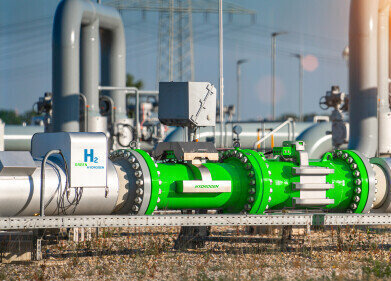Biofuel industry news
Why Does the Quality of Lubricants Matter?
Feb 18 2022
Lubricants play a critical role in reducing metal-to-metal contact and keeping machines in good working order. The concept can be applied to everything from recreational cars and bicycles to clean energy wind turbines and heavy-duty oil drilling infrastructure.
For operators who want to maximise efficiency, lubricant quality is a top priority. Want to know more? From hydraulic oils and heavy-duty greases to cans of WD-40, we take a look at some of the main reasons why lubricant quality matters.
Minimising mechanical wear
Most mechanical lubricants are designed to eliminate friction between moving parts and in turn, minimise wear. A good quality lubricant should achieve this goal and provide a long-lasting protective film between surfaces. Using low-quality lubricants runs the risk of allowing friction between moving parts, which can accelerate wear and release metallic contaminants into the system.
This is why many cycling enthusiasts choose to swap run-of-the-mill lubricants for high-quality products designed especially for bicycles. Similarly, oil and gas drillers rely on specialised industrial lubricants to minimise mechanical wear and maximise efficiency.
Reducing equipment maintenance costs
For most operators, it’s far easier and more cost-effective to proactively lubricate equipment than deal with issues caused by lack of lubrication. This applies to mechanical equipment of all calibres, from the engine of a Ford Focus to a hydraulic drilling rig at an oil exploration site. Ultimately, a good lubricant strategy should actively prevent problems caused by rust, particulate matter and other contamination sources.
Extending the lifespan of assets
Extending the lifespans of assets is one of the most compelling reasons to invest in high quality lubricants. It’s not just oil and gas facilities that stand to benefit from good lubrication strategies, with clean energy suppliers also using lubricants to extend the lifespan of assets. For example, the cost of a GE Haliade-X offshore wind turbine currently sits at around US$13 million. While the turbine features next-generation technology, a proactive lubrication strategy can significantly extend the lifespan of these valuable clean energy assets.
Preventing unscheduled downtime
Unscheduled downtime is a major expense for oil refineries and petrochemical plants. The latest research from Kimberlite reveals the average offshore organisation faces unplanned downtime costs of around US$38 million a year. Mechanical failure is a key driver of unplanned downtime, with issues often caused or fast-tracked by lack of lubrication. A good lubrication strategy, coupled with the use of a high-quality product, is one of the best ways to prevent unscheduled downtime.
Want to know more about the role of lubricants? Get a full rundown in ‘A Complete Guide to Lubricants - Types, Quality & Testing.’
Digital Edition
PIN 26.1 Feb/Mar 2025
March 2025
Analytical Instrumentation - Elemental Analysis for Quality and Process Control at Refineries, for Lubricants and Wear Metals in Engine Oils - Synthetic Lubricants: New Developments - Scaling...
View all digital editions
Events
Apr 08 2025 Birmingham, UK
Apr 08 2025 Kielce, Poland
Apr 08 2025 Ravenna, Italy
Apr 08 2025 Southampton, UK
Apr 08 2025 London, UK



















